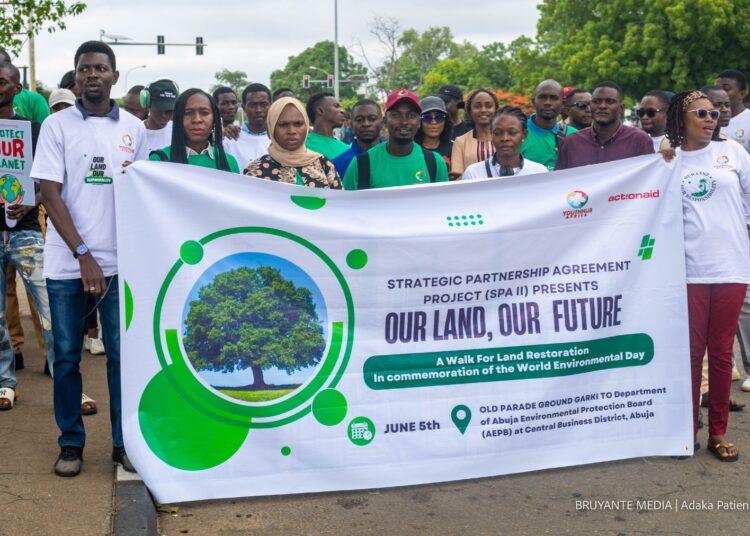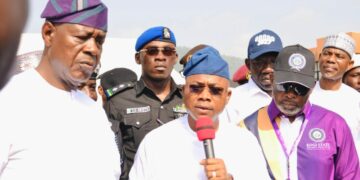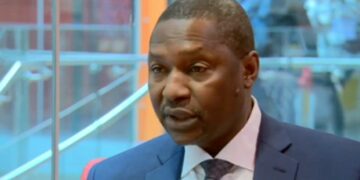A non-governmental organisation YouthHubAfrica and ActionAid have spotlighted the pressing environmental issues confronting the nation’s capital, lamenting its effect on agriculture.
This annual event, led by the United Nations Environment Programme (UNEP) since 1973, serves as a critical platform for global environmental awareness and action.
Addressing newsmen yesterday in Abuja during the event with the theme: “Our Land. Our Future,” the program manager at YouthHubAfrica, Mr. Segun Modupin, highlighted the significant environmental threats jeopardizing the sustainability and well-being of people, especially youth and women, who rely on agriculture as a primary source of livelihood.
He highlighted the impact on the region’s diverse cultures and environments, noting that youth and women, who depend on agriculture for their livelihoods, are particularly vulnerable.
He noted that desertification remains a major climate concern in Nigeria, driven by climatic variability and human activities such as extensive cultivation, overgrazing, bush burning, and urbanization.
“Since 2023, through the Strategic Partnership Agreement (SPA II) project, YouthHubAfrica and ActionAid have been actively engaging FCT communities.
“These efforts aim to empower residents with the knowledge and skills needed for climate resilience and mitigation, as documented through rigorous focus group discussions with community stakeholders, including women, youth, and community leaders,” he said.
Modupin stated that deforestation is a primary issue, particularly in communities such as Bwari, Kabusa, and Dukpa.
He noted that deforestation has led to severe soil degradation, land loss, and desertification, as the removal of protective vegetation cover exposes soil to erosion and diminishes its fertility and moisture retention capacity.
In response to these challenges, YouthHubAfrica and ActionAid organized an advocacy walk to raise awareness and promote collaborative efforts with the Abuja Environmental Protection Board to foster sustainable interventions in these communities.
“As an organization, we have brought forward the following demands and recommendations. We call for intensified sensitization and education through traditional media platforms such as radio and television to educate community members on climate change and the adverse effects of deforestation, bush burning, and other harmful practices,” he said.
He urged the establishment of community-specific bylaws, collaborating with community members to mandate the replanting of trees whenever one is cut down for construction or other purposes.
He furthermore encouraged the formation of environmental committees within FCT communities to oversee reforestation efforts and ensure compliance with environmental regulations.
Modupin also emphasised the importance of capacity building for farmers, advocating for workshops and training programs on sustainable land management techniques to minimize land degradation and enhance crop yields.
YouthHubAfrica and ActionAid acknowledged the pivotal role of the Abuja Environmental Protection Board (AEPB) in enforcing environmental regulations within the FCT.
He, however, said effective implementation of the National Environmental Regulations 2011 requires robust community involvement and proactive enforcement by governmental authorities.
YouthHubAfrica and ActionAid reaffirmed their unwavering belief in the government’s ability to address these demands. Under the SPA II project, they remain committed to providing technical support to the government and communities as needed to foster a sustainable future for the FCT.





